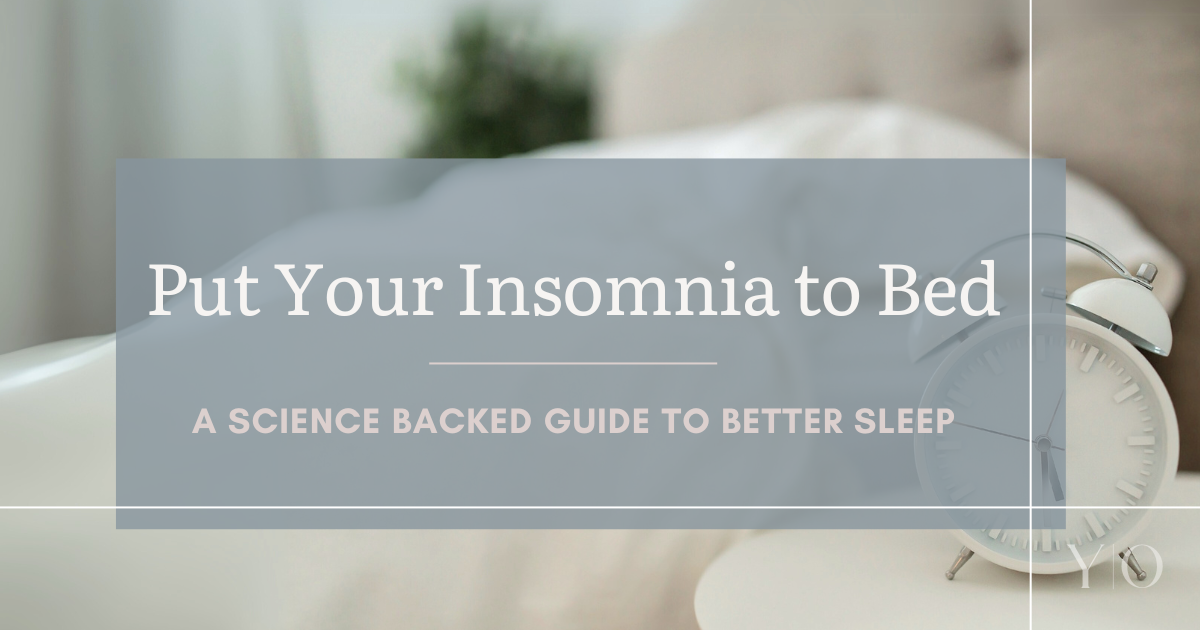Struggling to fall asleep or stay asleep? You are not alone. Insomnia affects millions of people, leaving them exhausted, frustrated, and desperate for rest.
Sleep is an essential biological process that allows the body and mind to restore and recharge. During sleep, the body undergoes critical functions such as tissue repair, muscle growth, and hormone regulation. Additionally, sleep plays a crucial role in brain function, aiding in memory consolidation, emotional regulation, and cognitive performance.
Chronic sleep deprivation poses serious risks to both physical and mental health. It can impair cognitive function, weaken the immune system, and increase the risk of conditions such as heart disease, diabetes, anxiety, depression, and dementia. Lack of sleep also exacerbates stress and diminishes overall quality of life.
Table of Contents
The good news? You don’t have to struggle with poor sleep forever. By implementing science-backed strategies, you can reset your sleep patterns and finally put your insomnia to bed.
The Science of Sleeping Well
Practical Tips to Improve Your Sleep
- Maintain a consistent sleep schedule
Go to bed when you feel sleepy as this is your body’s natural cue that it’s ready for rest. If you can’t fall asleep, don’t force it – engage in a relaxing activity until sleepiness returns. Wake up at the same time every day, even on weekends. Keeping a consistent sleep schedule helps regulate your circadian rhythm, keeping your internal clock in sync. This routine supports better sleep quality and strengthens your body’s natural sleep-wake cycle. - Create a relaxing sleep buffer zone
In today’s fast paced world, many people expect to go straight from answering emails or watching TV to falling asleep. However, sleep doesn’t work that way. Just like cooling down after a workout, your body and mind need time to transition from daytime alertness to nighttime rest. Give yourself 30 to 60 minutes before bed to engage in calming activities, such as personal hygiene rituals, reading, meditating, or taking a warm bath. This dedicated winddown period signals to your brain that it’s time to prepare for sleep. - Make your bedroom a sleep sanctuary
Create an ideal sleep environment by keeping your bedroom cool, quiet, and dark. A serene atmosphere signals to your brain that it’s time to unwind. Darkness encourages melatonin production, while a cool room temperature promotes deeper sleep. Use blackout curtains to block out light and white noise machines or fans to minimize disruptive sounds. Additionally, ensure that your mattress, pillows, and bedding are comfortable and supportive to enhance sleep quality. - Limit exposure to screens
Reduce screen time by at least an hour before bed. Blue light from phones, tablets, and TVs interferes with melatonin production, making it harder for your body to transition into sleep mode. Additionally, engaging with screens keeps your brain alert, delaying relaxation. Choose screen-free activities like reading or listening to calming music instead. - Avoid sleep saboteurs
Be mindful of what you consume in the hours leading up to bedtime. Avoid heavy meals, caffeine, nicotine, and alcohol, as they can disrupt your sleep cycle. Large meals may cause discomfort and indigestion. Nicotine acts as a stimulant. And while alcohol may initially make you drowsy, it disrupts sleep quality later in the night. Caffeine, even if consumed earlier in the day, can remain in your system for up to 10 hours, leading to sleep disturbances. To improve rest, limit caffeine intake and avoid late day consumption. - Reserve your bed for rest and intimacy
Use your bed only for sleep and intimacy. Engaging in activities such as working, scrolling on your phone, or watching TV in bed weakens the brain’s association between your bed and sleep, making it harder to fall and stay asleep. - Move your body, improve your sleep
Regular physical activity promotes better sleep by regulating the body’s natural sleep-wake cycle and increasing the need for deep, restorative sleep. Activities like walking, strength training, or aerobic exercise help you fall asleep faster and stay asleep longer. However, timing is important – vigorous workouts too close to bedtime can elevate heart rate, body temperature, and adrenaline levels making it harder to unwind. Aim to complete high-intensity exercise at least a few hours before bed to allow your body to transition into a relaxed state. - Quiet your mind for restful sleep
Managing stress and anxiety can significantly improve sleep quality. Engage in relaxation techniques such as deep breathing, progressive muscle relaxation, or mindfulness meditation before bed. These practices help calm the nervous system, reduce tension, and prepare the mind for sleep. By incorporating them into your nightly routine, you create a sense of peace that makes falling asleep easier. - Keep naps in check
Long or late naps can interfere with your natural sleep drive, making it harder to fall asleep at night. If you need a nap, limit it to 15–20 minutes and take it earlier in the afternoon. This ensures your sleep schedule remains intact and helps maintain a balanced sleep-wake cycle. - Let the sunlight reset your sleep clock
Getting natural light exposure during the day helps regulate your circadian rhythm, signaling to your body when it’s time to be awake and when it’s time to wind down. This alignment improves energy levels and alertness throughout the day while enhancing sleep quality at night. Spending time outdoors or near natural light sources can help keep your internal clock in sync, promoting a well-balanced sleep cycle.
Long-Term Sleep Success
Overcoming chronic insomnia isn’t about a quick fix – it’s about retraining your brain to trust sleep and realigning your body with its natural rhythms. The more consistently you practice these strategies, the stronger your sleep system will become. By sticking to healthy sleep habits, you reinforce signals to your brain that sleep will come naturally. It may take time to feel the full benefits, but with persistence, you’ll fall asleep faster, experience deeper rest, and wake up refreshed.
When to Seek Professional Help
If these strategies don’t improve your sleep, it may be time to seek professional assistance. The most effective treatment for chronic insomnia isn’t medication – it is Cognitive Behavioral Therapy for Insomnia (CBT-I). This evidence-based, non-pharmacological approach helps change unhelpful sleep habits, rebuild natural sleep drive, realign circadian rhythms, and address negative thoughts about sleep. Dr. Oren specializes in CBT-I and can help you develop lasting sleep habits. Call 775-525-8100 to schedule an appointment to see how CBT-I can help you get a more restful nights sleep.
Sleep is not a luxury. It is a necessity for overall health and well-being. By prioritizing good sleep habits and making small adjustments to your daily routine, you can enjoy the benefits of restorative sleep. Remember, a well-rested mind and body are essential for a happy, healthy, and productive life.
Put your insomnia to bed! Start tonight, and your future well-rested self will thank you.
Please note that the information provided in this blog post is for informational purposes only and is not intended as a substitute for professional therapy or mental health treatment.
Learn More: Expert Advice & References
- American Academy of Sleep Medicine (AASM)
Information on CBT-I as a first-line treatment for insomnia.
https://sleepeducation.org/insomnia/treatment/cognitive-behavioral-therapy-for-insomnia/ - Sleep Foundation
A breakdown of how CBT-I works and tips for improving sleep.
https://www.sleepfoundation.org/insomnia/treatment/cognitive-behavioral-therapy-for-insomnia - National Institutes of Health (NIH)
Research article discussing the effectiveness of CBT-I in treating insomnia.
https://pmc.ncbi.nlm.nih.gov/articles/PMC6796223/ - Mayo Clinic
Information on CBT-I as a first-line treatment for insomnia.
https://www.mayoclinic.org/diseases-conditions/insomnia/in-depth/insomnia-treatment/art-20046677 - The New York Times (2023). How Cognitive Behavioral Therapy Helps With Insomnia.
An article explaining how CBT-I is an effective, drug-free treatment for insomnia, emphasizing its long-term benefits and how it works.
https://www.nytimes.com/2023/08/28/well/mind/insomnia-cognitive-behavioral-therapy.html
Research articles discussing the effectiveness of CBT-I in treating insomnia:
- Edinger, J. D., & Means, M. K. (2005). Cognitive-Behavioral Therapy for Primary Insomnia. Clinical Psychology Review, 25(5), 539-558.
https://pmc.ncbi.nlm.nih.gov/articles/PMC3481424/ - Rossman, J. (2019). Cognitive-Behavioral Therapy for Insomnia: An Effective and Underutilized Treatment for Insomnia. American Journal of Lifestyle Medicine, 13(6), 544–547.
https://pmc.ncbi.nlm.nih.gov/articles/PMC6796223/ - Trauer, J. M., Qian, M. Y., Doyle, J. S., Rajaratnam, S. M. W., & Cunnington, D. (2015). Cognitive Behavioral Therapy for Chronic Insomnia: A Systematic Review and Meta-analysis. Annals of Internal Medicine, 163(3), 191-204.
https://www.acpjournals.org/doi/abs/10.7326/M14-2841 - van der Zweerde, T., Bisdounis, L., Kyle, S. D., Lancee, J., & van Straten, A. (2019). Cognitive Behavioral Therapy for Insomnia: A Meta-Analysis of Long-Term Effects in Controlled Studies. Sleep Medicine Reviews, 48, 101208.
https://doi.org/10.1016/j.smrv.2019.08.002



